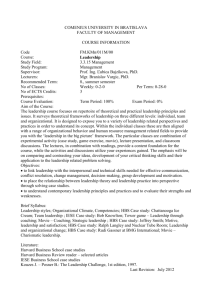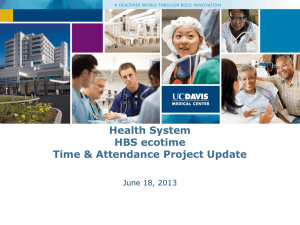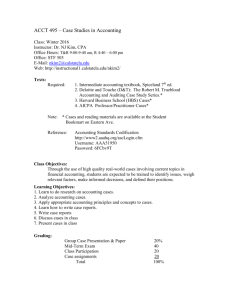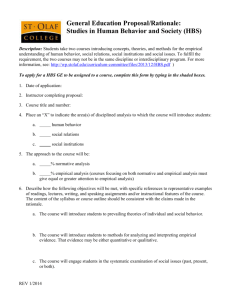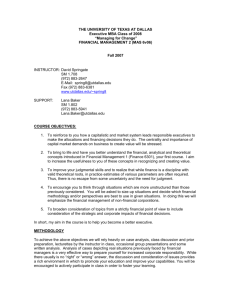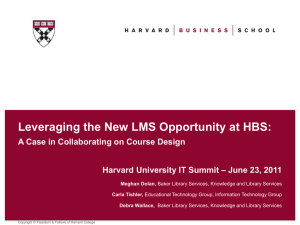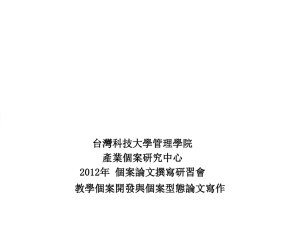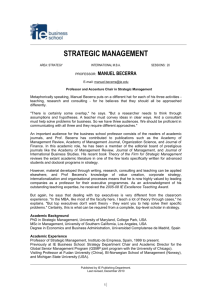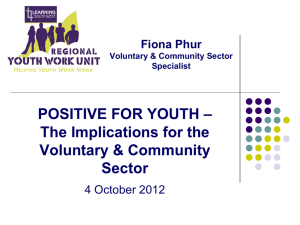HCA LP 2011 Control Summary slides
advertisement
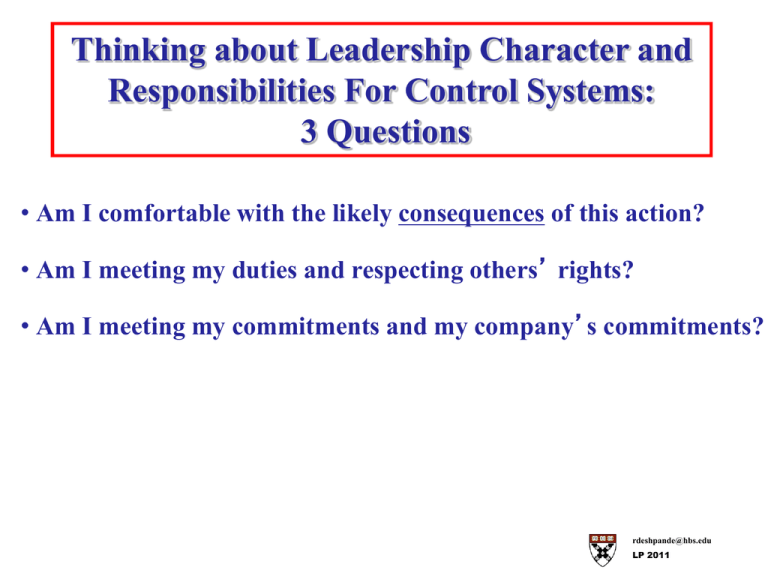
Thinking about Leadership Character and Responsibilities For Control Systems: 3 Questions • Am I comfortable with the likely consequences of this action? • Am I meeting my duties and respecting others’ rights? • Am I meeting my commitments and my company’s commitments? rdeshpande@hbs.edu LP 2011 Consequences of Actions Stakeholders Likely Impact: Short-Term Likely Impact: Long-Term Stakeholder 1 (Customers) Stakeholder 2 (Employees) Stakeholder 3 (Suppliers, Employees of Suppliers; i.e., B2B supply chain) rdeshpande@hbs.edu LP 2011 Thinking about Responsibilities: 3 Questions • Am I comfortable with the likely consequences of this action? • Am I meeting my duties and respecting others’ rights? • Am I meeting my commitments and my company’s commitments? rdeshpande@hbs.edu LP 2011 Thinking about Responsibilities: “Duty of Fairness” • Types of “Fairness”? • “Procedural Fairness” (equal treatment under defined rules) • “Distributive Fairness” (fair allocation of rewards/benefits) • Fairness for Whom? • Customers? Employees? Customers’ Employees (B2B Supply Chain)? Suppliers? Suppliers’ Employees (B2B Supply Chain)? Investors? rdeshpande@hbs.edu LP 2011 Thinking about Responsibilities: 3 Questions • Am I comfortable with the likely consequences of this action? • Am I meeting my duties and respecting others’ rights? • Am I meeting my commitments and my company’s commitments? rdeshpande@hbs.edu LP 2011 Responsibilities : 8 Principles for Action Commitments • Fiduciary Principle: act in the best interests of your company and your investors • Property Principle: respect property and the rights of those who own it • Reliability principle: keep promises, agreements, contracts, and other commitments • Transparency principle: conduct business in a truthful and open manner • Dignity principle: respect the dignity of all people • Fairness principle: deal fairly with all parties • Citizenship principle: act as a responsible member of your community • Responsiveness principle: be responsive to the legitimate claims and concerns of others rdeshpande@hbs.edu Adapted from the Global Business Standards Codex, Paine, Deshpande, Margolis, Bettcher, HBR Dec 2005 LP 2011 Control – Systems and Processes: The Dilemma A single universal code of conduct (business standards) applied globally or situational business ethics following the “when in Rome”* notion. *When I go to Rome, I also fast on Saturday: when here, I do not. If you go to any church, observe local custom…” fourth century Ambrose, bishop of Milan, quoted in Peter Brown, Augustine of Hippo: A Biography (Berkeley, CA: Univ. of Calif. Press, 2000), 77-78. Research reported in “When in Rome: A Global Leader’s Guide to Managing Business Conduct,” Harvard Business Review Online, August 2011 (forthcoming), Rohit Deshpandé, Joshua Margolis, and Lynn Paine. rdeshpande@hbs.edu LP 2011
